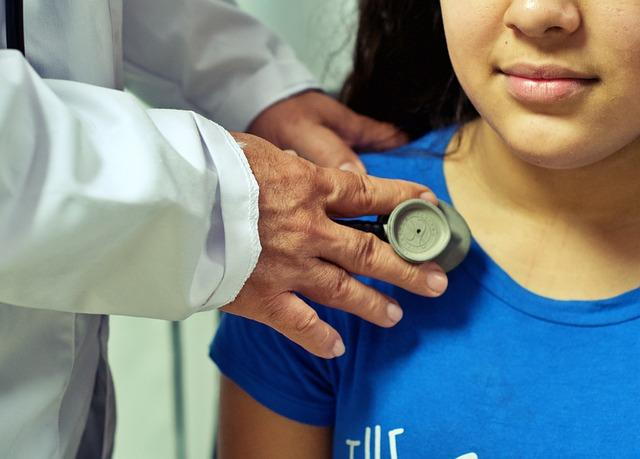
You know that your doctors like to see you every year. This goes for kids, too: every child should go see a pediatrician for a checkup at least once a year. But what surprises a lot of parents is that your school wants your child to see the doctor, too! Often, both a back to school physical and a sports physical are sometimes required before your child can be enrolled in classes or activities, respectively.
That’s not necessarily a bad thing. A physical provides your child with a unique opportunity to touch base with their pediatrician. Building this relationship over years can help your provider get to know your child, improving care and wellness in the process. A physical can help make sure that your child is growing up healthy and catch possible problems early.
That all makes sense. But… Why do schools require them?
Why a Back to School Physical is Sometimes Required
For most children, a routine physical exam will occur every year. This is when your pediatrician will check on your child’s growth and screen for a variety of common conditions. During a physical, your child’s pediatrician will check their weight, their height, and typically conduct a physical exam. Additionally, your child will likely be given any recommended vaccines during this time.
Typically, a “back to school physical” is synonymous with an annual exam or wellness check. The “back to school” part gets emphasized for two reasons:
Many schools require physicals for enrollment.
It provides parents with a gentle but practical reminder to schedule a child’s annual wellness exam.
Of course, not all school districts are the same, so be sure to check with your local enrollment guidelines.
Benefits of Back to School Physicals
There are several reasons why schools might require an annual physical for students. Some of these reasons will benefit a child individually. Others are designed for the good of public health and the district at large. The most common reasons include the following:
Easy Vaccinations: Annual physicals are usually the best time and place for your child to get required vaccinations. These vaccinations can prevent your child from becoming ill during the school year, improving attendance and academic performance as a result. Additionally, successful vaccinations can prevent other children from catching diseases from your child (improving the overall health of the school).
Screenings for health conditions: Annual physicals provide pediatricians with an opportunity to screen for conditions that can impact learning. For example, your pediatrician can screen for conditions as diverse as autism and dyslexia to the need for glasses. These screenings can effectively identify ways to help your child learn better and allow you to communicate that information to your child’s school.
Medications: If your child needs to take medications while at school, an annual exam can provide the school with the necessary documentation and dosing information.
A healthy learning environment: An annual exam can help your pediatrician detect various medical conditions, ensuring that your child is healthy enough to go to school and focus on learning. When a medical condition necessitates extra care, an annual exam may be the first step in ensuring your child’s school is aware of those additional needs.
Annual exams can have a wide variety of health benefits, especially over the long term. It’s critical that you make sure your child attends these yearly appointments.
Why Schools Require a Sports Physical
As your children age, they may become interested in school sports. Most schools require a specialized physical, called a sports physical, before your children can participate at the middle or high school level. These sports physicals may seem frivolous, but they are critical because they screen for various conditions that may place your child at a high risk of injury and make sure your child meets certain physical requirements.
Some conditions that a sports physical will screen for include the following:
Heart arrhythmia: An irregular heartbeat, called an arrhythmia, can sometimes disqualify your child from participating in some sports. That’s because certain sports can exacerbate the occurrence of an arrhythmia and put your child in danger or significant complications.
Eating disorders: A sports physical helps ensure that your child’s eating habits are healthy enough to offset the high caloric demands of school sports.
High blood pressure: High blood pressure in some sports can be particularly dangerous. A sports physical can help ensure your child either has a healthy blood pressure or the means to control high blood pressure via medication.
General health: A sports physical will also ensure that your child is generally healthy enough to participate in their sport of choice.
Different sports will have different physical requirements when it comes to what the exam entails (or what the physical results will allow and disallow). It’s important to emphasize that schools require these physicals because they are absolutely essential to keeping the child healthy as they play sports.
Keeping Your Child Healthy On and Off the Field
Whether your child’s school requires a physical or not, the benefits to your child remain. So it’s important to make an annual wellness check and give your child an opportunity to see their pediatrician. Annual wellness checks and sports physicals help your child get a healthy start–and stay on a great wellness path well into adulthood.
Want to talk to your pediatrician about physicals? Contact our Chicago or Northbrook offices to schedule an appointment!
